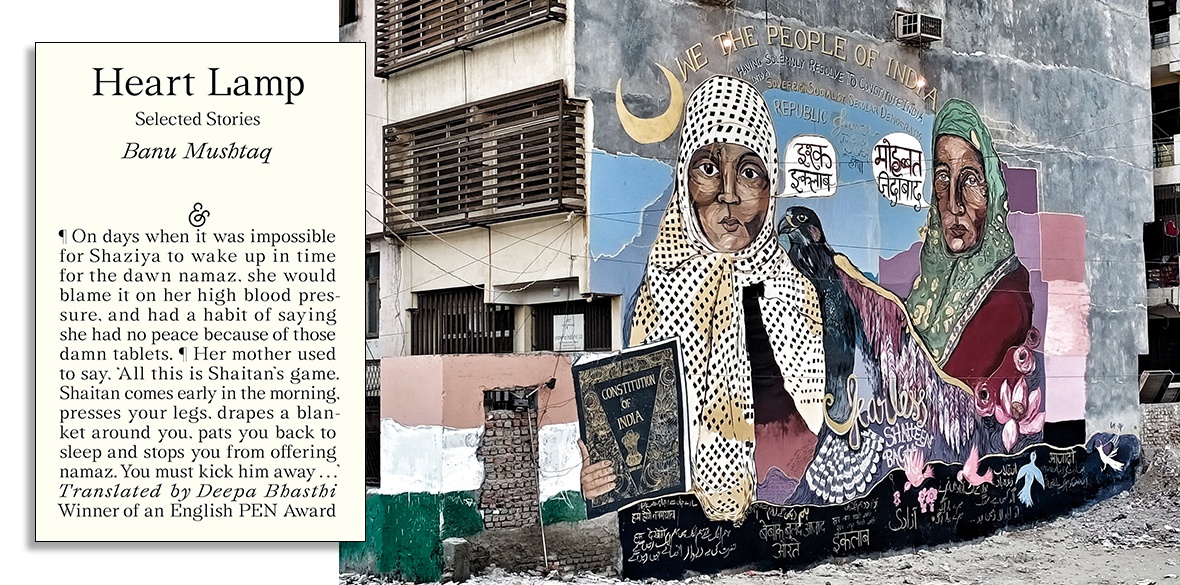This is the last article you can read this month
You can read more article this month
You can read more articles this month
Sorry your limit is up for this month
Reset on:
Please help support the Morning Star by subscribing here
Heart Lamp
Banu Mushtaq, And Other Stories, £14.99
IN Heart Lamp: Selected Stories, matters marinate or smoulder. Readers get to pore over paragraphs while issues ignite.
Amid her precise environments, and their host of vivid social-class enmity/familial powerplay, writer Banu Mushtaq delineates volatile occurrence with trustworthy control. Her succinct flair in sketching distinct three-dimensional allies and adversaries sets her arena for pivotal realisation and outcome. I’m put in mind of the sparking of domestic pyrotechnics, blue touchpaper and all.
In translation by Deepa Bashti, many choice Kannada words persist. These are never italicised. The beauty of this choice means not only that the music of given names; details and condition of dress; inventories of foods – and reference to who’s doing the cooking – each remain powerfully intact. Original words are also used where legal forces and devices of tradition come into play and this all feels right, in recognition of documentary authenticity and cultural nuance. English language readers will sense and respect complex entities (Sharia, for example) while protagonists — many of them adorable against the odds — maintain voices of credible immediacy.
Where I was flipping straight from the end of one tale into the beginning of the next in sequence, the reiteration of themes brought awareness of an activist’s writerly devices and agenda. Culture abounds here, as elevated ritual and psychic truth, whereas the material application of cultural notions cannot but lapse into mechanistic tradition, with compelled female roles bearing the brunt. Here is a choreography of thwarted aspirations, forced marriages, servitude, crises of the womb, precarious retainers, and elder marginalisation. There’s also a curiously inevitable hollow meanness in women who embrace ostentatious marital wealth.
Each plot hinges on the energy of a capricious self-serving impulse. There’s tug-of-war around vital home and hearth and no shortage of deep shame. I found the scenarios encouraged guess-the-culprit, and I began to think how well the material would serialise on our screens.
Where I read with more respite, I could register one story’s cadence with a full sob then later embark on another, with its gut punch or sudden radiance. I became less conscious of writerly calculation, sensing instead an author’s copious immersion and how fully this honours fragile experience in its spontaneous turn.







